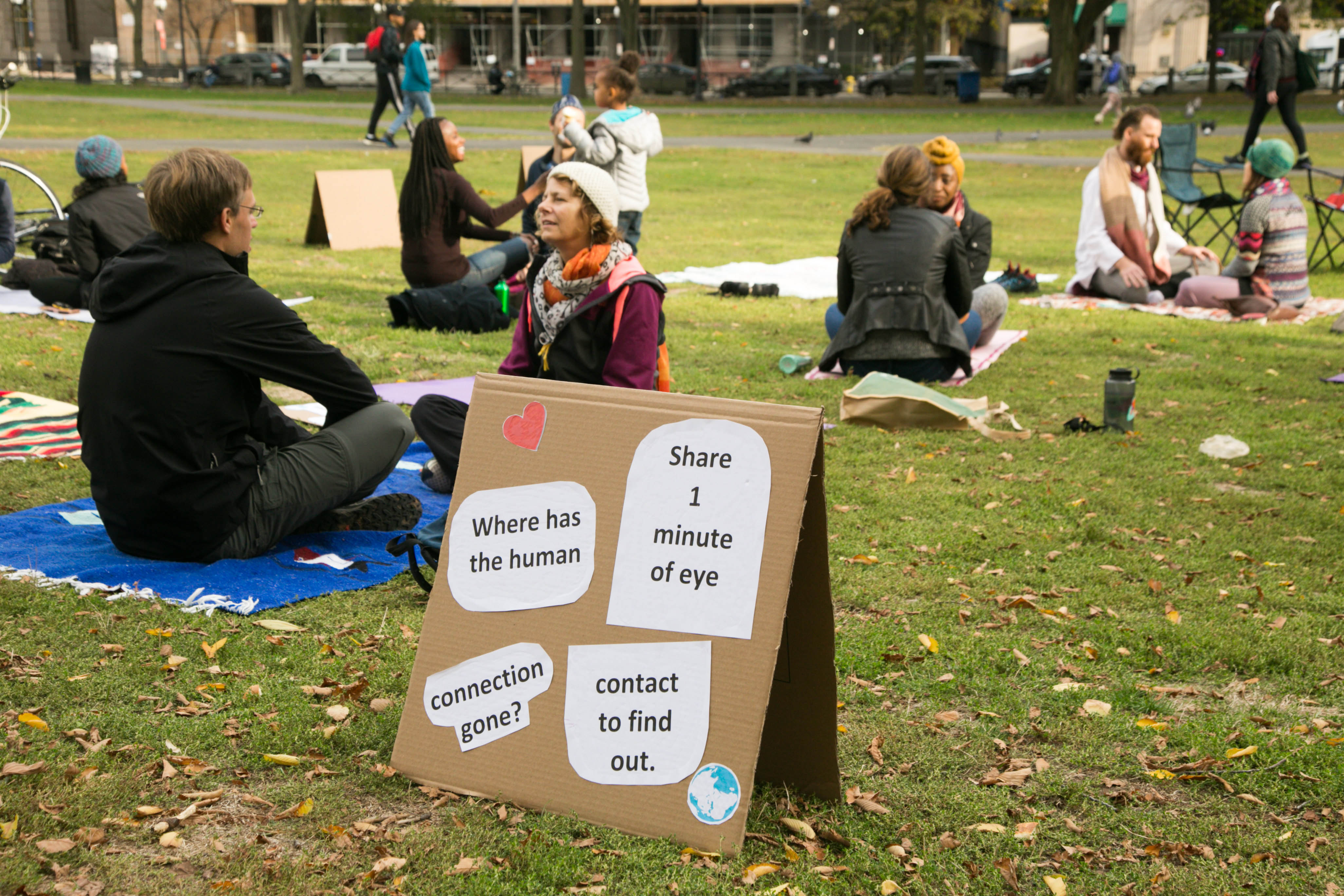
Courtesy of Chris Randall
On Saturday, a few dozen Yale students, New Haven locals and Connecticut residents gathered on the New Haven Green to stare into each other’s eyes and revive the spirit of human connection.
New Haven was one of over 160 cities across the world to host The World’s Biggest Eye Contact Experiment. The event was organized in cities around the world by The Liberators International, a social movement based in Australia that seeks to unite the globe by holding events that emphasize love and humanity. Last year, the organization’s first iteration of the experiment reached over 50 cities worldwide.
Sara-Joy Liebig, a local singer-songwriter and the event’s organizer, said she hopes to bring the experiment to New Haven in subsequent years as well.
“The event brings together a diverse group of people to share a few special moments of human connection,” said Liebig, who is also a member of The Liberators.
Participants who had signed up on the event’s Facebook page came throughout the afternoon to exchange eye contact with strangers for one-minute intervals. Many bystanders who had not registered also stopped to take part in the experiment.
Though the task initially seemed daunting and uncomfortable to some participants, many chose to repeat the one-minute exercise multiple times to lock eyes with a variety of people. Many of these exchanges ended up lasting 10 or more minutes as some participants shared life stories and impressions of each other.
“I think you can tell so much about a person in their eyes,” said Yasmin Ramadan, a librarian at Sterling Memorial Library who stayed at the event for over two hours.
Attendees shared stories of hardship, fear and insecurity and several people, including Ramadan and Liebig, cried as they heard the trials of others and confronted the difficulties they themselves faced in life. Some strangers also embraced each other in long hugs, weeping into each other’s shoulders.
One attendee at the event said she found it much easier to open up to strangers than to her friends and classmates because she knew she would most likely not see the other attendees again.
Liebig also noted the feeling of openness and safety that the event created.
“Here, you don’t need to prove anything to anyone,” she said.
The event brought together strangers from a wide range of backgrounds, from Yale students to Army veterans to local waitresses. Many noted that the event not only fostered human connection, but also promoted diversity.
“We all come from different backgrounds, but we all want the same thing — peace,” said Samantha Nesbeth, a nurse from Meriden.
Though many participants engaged in deeply personal conversation, others chose to have sessions of nothing but silence and pure eye contact. Over the course of the afternoon, many eschewed the suggested time limit and chose to sink in to each other’s gazes “until the time to break felt right,” as one participant said.
As the event came to a close, many questioned how they could incorporate their afternoon’s experiences into their daily lives.
Haeyoon Chang SPH ’18, who attended Saturday’s event, said she wanted to find time to create such moments of human connection, but found it difficult to do so given the demands of everyday life.
“Everyone ‘connects’ through Snapchat these days, but it’s the laziest way of connecting,” Chang said. “This has so much more value.”
Other cities that held the event included Seattle, Sao Paulo and Buenos Aires, Argentina.







